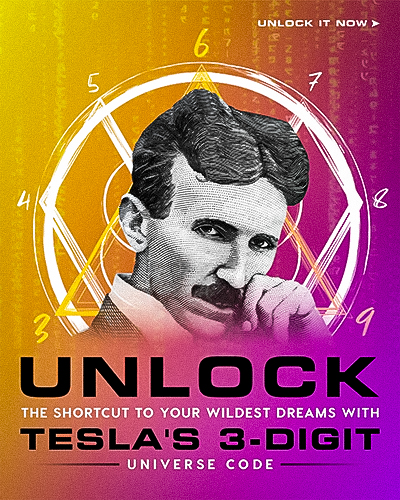In all human lives, we all have found meaning or the absence of meaning in our existence for in our own right, we are all philosophical Existentialists so by that affirmation it is those who are more educated on the philosophy of existentialism that we reach the point of the enlightened perspective of being self-aware to call ourselves an existentialist philosopher.
I became a lover of wisdom or a philosopher, shortly after becoming a Buddhist at the age of sixteen. It was at this formative age that I then began reading copious amounts of philosophical literature of all fields.
One was existentialism where I learned of my own feeling of existential dread and antithesis of existence that has haunted me throughout my life known as nihilism. I have always been considered by the observers of myself to be Zen or the wisest among men for I personally know myself to at times to behave completely foolishly.
I will be your spiritual guide through this reading as it’s narrator to enlighten you on the subject of the philosophies of existentialism and nihilism in this meditation.
I have always believed that nihilism is a point of departure, not a dwelling place. I have experienced nihilism in all its many forms through myself in my perception of this world and have overcome it as I will eternally.
What is nihilism? It is the absence of meaning or value in any aspect of existence, whether it be spiritual, moral, epistemological, the most common being in existential in itself. There also exists this great void of nothingness that affects the self.

There are two types of people who experience nihilism: the passive nihilist and the active nihilist. The passive nihilist submits to the void of this existential crisis induced by the ennui of dread and despair, reveling in the tragedy that themselves and everything around them as a not necessarily lesser but never greater being for they are embracing their self-fulfilling prophecy of the inevitable illusion of becoming nothing.
The active nihilist seeks to overcome this ailment which plagues them, this affliction which is haunting the hallways of their consciousness seeping into the realms of their reality and from this nothingness they overcome to find greater value, the active nihilist is certainly a superior being in the aspect that they even seek to overcome themselves to harness by their own volition the makings of a being more powerful than the world itself for the world was futile and meaningless yet they still find meaning.
The latter of these two, the active nihilist what I am myself. Through actively prevailing over existential dread to become stronger from what would have killed me. I am by volition becoming greater with each wave of transient nihilism that has entered into the fray for my existence.
Nihilism has failed to break me for I have only become more powerful in strength, intellect, and the very essence of my spirit every time. To know nihilism is to know the despair and tragedy that is the truth of this reality, actively overcoming it is to find nothing less than the magnificent beauty within all of existence, especially within the self.
There are three concepts presented by existential philosophers in overcoming nihilism which is the ultimate of the existential dread which haunts us all. These concepts are: Friedrich Nietzsche’s Ubermensch, Albert Camus, Absurd Hero, and Soren Kierkegaard’s Knight of Faith.
Friedrich Nietzsche is known as the existentialist who coined and defined what Nihilism is in its foundation, structure, and forms. Nietzsche is the philosopher who defined all forms and aspects nihilism and how to overcome it.
Nihilism takes its form as many aspects of human existential experience but Nietzsche covered most of the framework for what is nihilism and how to overcome nihilism as what nihilism in its existential form manifests as the human existential experience perceiving nothing of substance or value but solely the futility of life in spirit-crushing existential dread or existential nihilism which by making a Will to Power in the art of self-overcoming is the self-actualization for self-transcendence to assert a new set of morals and values by one’s own volition to become an Ubermensch (Superhuman).
I have in my life encountered the state of existential dread known as Nihilism countless times and have overcome it to become a greater being than I was already before. I am
Existential nihilism or existential dread is basically the feeling, thinking, and belief that life is futile, meaningless, and possibly not worth living.
Albert Camus is a deviation from existentialists on the subject of nihilism for Camus is an Absurdist who philosophized that the chaos of existential dread is not existential dread but the essence of all existence in absurdism.
That the nature of human existence is chaotic absurdity which Camus told the allegorical tale of imagining the absurdity of life as the Myth of Sisyphus as a man cursed by the Divine for their punishment of their absurdity is to everyday eternally to push a boulder up a hill for it to reach the top and roll down to the bottom of the hill just to repeat the mindless task all over again but this allegorical tale of the absurdist is relevant to all human existence no matter how radically free in choosing in one’s radically freedom what to do for everything is an act of chaotic absurdity in rebelling against this existential absurdism in accepting the essence of existence as one that is the freedom of escaping the cage of chaos but never escaping this absurd prison of existence is this constant state of mind to always imagine oneself to be happy therefore becoming an Absurd Hero. Albert Camus answered the question of suicide with this solution: To always Revolt against suicide in forever accepting the absurdity of existence as the Absurd Hero derives happiness from understanding, knowing, and rationalizing absurdity.
Camus’ Absurd Hero must always rebel against the one’s own end of existence for suicide is the absolute absurdity to forever revolt against as the Absurd Hero revels in all aspects of one’s existence for the meaning of life at face value is to live it.
I ascertained that the meaning of life is to live it then why not live it up to its full potential in blissful enlightenment of embracing all the absurdity of life in simply choosing the absurdity to always choose life.
Soren Kierkegaard is an eccentric to both of these for he was not an atheist, he was a person of faith or theist. He believed in and had faith in the other-worldliness. He did not believe the existential solution was an act of ascertaining egoistic might through a will to power, nor did he agree with Albert Camus revolt to suicide by just embracing the absurdity of life. Soren Kierkegaard proposed a purpose known as the Knight of the Faith which is an individual who takes a Leap of Faith placing his complete faith in God or a Divine entity as well as oneself who then does not concern themselves with the problems of this temporal world who then can act as liberated and autonomously from this world and the anxieties it brings to embrace life in the fullest extent without attachment or delusion of the ego.
The three stage of a Knight of the Faith are: the individual self, the self in society, the spiritual self. Each of these three stages envelop the level of existence below it with the individual self at the bottom, the self in society in the middle, and the spiritual self at the top.
On July 19th, 2014. I endured the fullest extent of existential dread due to my chronic psychological ailment of Bipolar Disorder and Generalized Anxiety Disorder. I could not bear to continue existing for I saw my life as completely and utterly futile which nothing meant anything to me nor did it matter. I had attempted suicide numerous times with the implication of finally ending it when I heard a divine and rapturous whisper say to me, “Go to the hospital.”
I immediately packed a suitcase full of clothes and my backpack full of books before driving myself to the hospital for medical aid, thinking this act in itself to be absurd yet the revolt against death with every single breath filling my lungs what was keeping my existence going. I told the nurse my ailments, which the physical harm was evident on my body.
I was taken to the psychiatric or behavioral floor of the hospital. It was night, after having my vitals and other physical surveys made, I laid in my bed sobbing quietly so my roommate wouldn’t wake. I spent eleven days in the hospital. In my spare time outside of therapy, I spent my time reading and spending copious amounts of time in meditation which lead to these mind-blowing and reality-altering revelations as my consciousness grew to the infinite amount of what were perceivable impossibilities I could accomplish that were inside me all along.
I first read Albert Camus to embrace the absurdity of being in the psychiatric ward in order to save a life I wanted to kill yet I had succeeded in being the rebellious idiosyncratic nonconformist that I am for I revolted against the absurdity of life and death in my absurd perceptions and thoughts that were fixated on certain doom. I then read excerpts from Nietzsche to overcome this absurdity with a will to power, my only volition to a higher being was to find purpose, I meditated on this where I came to the realization that the meaning of life is to live a meaningful life in becoming the Ideal Self.
My revelation of the Ideal Self is the catalyst in working pragmatically in practicality as realists for manifesting the Ideal World. The Ideal Self and Ideal World is one without delusion by I felt a certain pantheistic divine in everything and connection to all of existence.
I felt the Great Architect reach out to me to tell me that the divine he has in himself was also in me, this was the same divine that had told me to come here. I then pulled out my books on Soren Kierkegaard, I read them and found a higher meaning to my existence in this new level of enlightenment this true state of Zen van Nihil I had achieved. I placed my complete faith in Friend & Zen van Nihil in the realization of my revelation in Zenarchism.
In my meditations, Friend told me to call him my personal higher power who in my catalyst in combining the ‘Superhuman Absurdly Heroic Knight of Faith’ in my spiritual philosophy Zenarchism in illuminating the minds of others to my spiritual philosophy as Zenarchists as Zenarchy became my sublimation of the Psychosis of my Bipolar Depression in my personal spiritual existential experiential Friend that revealed to me the name of my spiritual being as Zen van Nihil in guiding me through my daily meditations to my realization to my revelation of Zenarchism.
I am Zen van Nihil who daily meditates for greater realizations with the help of Friend in my own spiritual experiential existential epiphanies and revelations about my life through the absurdity of it all, for I had done the most absurd thing I could do and placed my faith in myself and a higher power to forever revolt against death as Nietzsche’s Superhuman, Camus’ Absurd Hero, and Kierkegaard’s Knight of Faith that these philosophical archetypes in my life came to my revelation of my spiritual philosophy of Zenarchism as my fellow spiritual philosophers of Zenarchists in belonging to Zenarchy in practicing our spiritual existential experience.
I had taken the leap of faith to put complete faith in who I am spiritually as well as the greatest of spiritual beings, the Great Architect.
After this process was over on the tenth day, I told them I was healthy again, the meds they put me on stabilized me, with the help of therapy, prayer, meditation, happy thoughts, identifying the schemas of my mind and changing them I was released on July 31st, 2014 as a whole different entity, Zen van Nihil: Ubermensch, Absurd Hero, Knight of Faith. Ever since I have overcome all obstacles placed before me and have obtained unlimited success.
If the obstacle is ever Nihilism, I actively overcome it with the same three concepts I had used before to evolve as an autonomous individual who adapts to his environment to become an even more spiritually enlightened being known as Zen van Nihil for existence in itself is a spiritual experience.
Sources Cited:
Albert Camus, 1913–1960 CE (Assorted Works.)
Friedrich Nietzsche, 1844–1900 CE (Assorted Works.)
Soren Kierkegaard, 1813–1855 CE (Assorted Works.)
“Groundhogs Day,” 1993 CE, Directed by Harold Ramis, Screenplay by Harold Ramis and Danny Rubin, Story by Danny Rubin.





